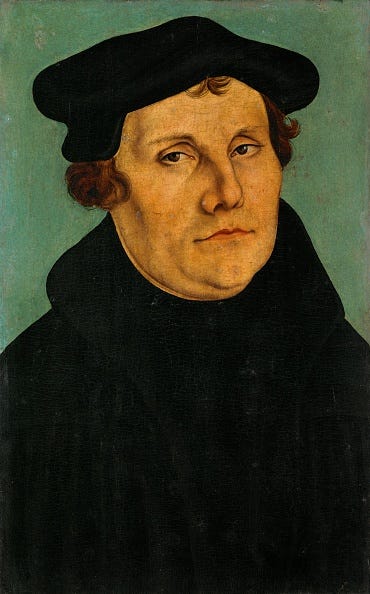The Writer's Almanac from Sunday, November 10, 2013
"The Heron" by Jack Ridl, from Practicing to Walk like a Heron. © Wayne State University Press, 2012
ORIGINAL TEXT AND AUDIO - 2013
On this date in 1961, the satirical anti-war novel Catch-22 by Joseph Heller was published. Catch-22 is about a World War II bomber pilot named Yossarian who tries to get himself declared insane so he can stop flying bombing missions. Unfortunately, there is a regulation called Catch-22, which says that if you want out of combat duty you can't be crazy.
Heller wrote: "[A pilot] would be crazy to fly more missions and sane if he didn't, but if he was sane he had to fly them. If he flew them he was crazy and didn't have to; but if he didn't want to he was sane and had to." He also wrote: "But that was war. Just about all he could find in its favor was that it paid well and liberated children from the pernicious influence of their parents."
Catch-22 got mixed reviews, but it became a cult favorite. And by 1963, it had become the best-selling book in America. Vietnam War protesters began wearing pins that said, "Yossarian Lives!" The phrase "Catch-22" became a part of the American lexicon, defined by one edition of the Oxford English Dictionary as "a condition or consequence that precludes success, a dilemma where the victim cannot win."
It's the birthday of physician and activist Samuel Gridley Howe, born in Boston (1801). He didn't think much of school and spent most of his time at Brown University thinking up practical jokes, but he made it through and went on to medical school. His hero was Lord Byron — Howe loved both his poetry and his commitment to the Greek Revolution. Byron died in Greece in April of 1824, and four months later, Howe graduated from Harvard Medical School. A special guest at the commencement ceremonies was the Marquis de Lafayette, a hero of the American Revolution, who gave a speech praising the cause of the Greek Revolution. Howe was inspired by Lafayette and hoped to follow in the footsteps of his hero Lord Byron, plus he was getting over an unhappy love affair. So almost as soon as he graduated, he got on a ship and sailed to Greece to volunteer his medical services to the revolutionaries. A fellow American who joined the Greek cause, a Vermont farmer and soldier, wrote about meeting the slender, handsome Howe: "I was astonished. He looked more like a doll than a soldier."
In Greece, Howe had plenty of medical experience — he wrote, "During this time I have dressed more difficult wounds than I should have an opportunity of seeing in Boston in years, and performed more operations than might have fallen to my lot during my life had I stayed at home." He clashed with the local Greek doctors, and at one point, he got so fed up with one doctor that he punched him. But he learned to work with them, and he stayed on, as a physician and relief worker, until the end of the war. Then he returned to New York with two Greek children he had agreed to educate in America, and Lord Byron's helmet and sword, and he went on the lecture circuit. Announcements of his lectures almost always mentioned the children and Byron's objects as selling points. The lectures were popular, and Howe raised about $60,000 for Greek refugees.
After a few more years in Greece and Paris, Howe returned to America, convinced by a friend to throw himself into a new cause: education for the blind. His friend was starting a school and offered Howe the position of director. Howe accepted, even though the school had no students and no buildings. He started teaching a few students in his father's house; when they could no longer fit there, they were invited to set up their school in a mansion owned by the rich industrialist Thomas Perkins, who had made his fortune trading furs and smuggling opium. And so the school became the Perkins School for the Blind. A few years later, Howe taught a young girl who was deaf and blind, the first time that had been accomplished in American history. Howe later served as an advocate for children with all sorts of disabilities. He bucked conventional wisdom by insisting that no matter how successful special schools were, children with any sort of issue — whether blindness, developmental disabilities, deafness, behavioral problem, or anything else — should be integrated into society with everyone else rather than confined in institutions.
Howe was also a dedicated abolitionist — along with his wife, Julia Ward Howe, who wrote "The Battle Hymn of the Republic" — and he became active in the women's suffrage movement. He and Julia had a rocky marriage, but they shared a passion for the same causes, and together they founded the Boston Daily Commonwealth, an antislavery newspaper. Howe publicly demonstrated against the Fugitive Slave Law in elaborate ruses to try and free slaves who were supposed to be returned to their Southern masters, and he was one of six men who secretly funded John Brown's activities.
Howe spent the final years of his life fighting poverty. He advocated an end to child labor, higher wages for workers, and a progressive tax system — he explained that the wealthy would see such a tax system as an invasion of their rights, but that in his opinion, poverty was an invasion of poor people's rights. He said that ending slavery was not enough "so long as the labors and drudgery of the world is thrown actively upon one class, while another class is entirely exempt from it. There is a radical injustice in it. And injustice in society is like a rotten timber in the foundation of a house."
It's the birthday of theologian Martin Luther, born in Eisleben, Saxony (1483), which is now located in Germany. He's best known as the man who sparked the Protestant Reformation, but he was also an extraordinarily productive writer. Between the years of 1516 to 1546, he published an article on religion every other week, totaling more than 60,000 pages. It has been estimated that during his writing life, his published writings made up 20 percent of all the literature being published in Germany at the time.
In addition to his own writing, Luther spent much of his late life working on a translation of the Bible into German. There had been a few German translations before his, but they were purely literal translations. He wanted to appeal to average people, and he tried to use words that would be understood by common Germans. He said, "[The translator] must ask the mother at home, children in the street, the common man in the marketplace, and look them in the mouth, and listen to how they speak, then translate accordingly."
Toward the end of his life, Luther began to regret how many books he had written. He said, "The multitude of books is a great evil. There is no limit to this fever for writing. ... I wish that all my books were consigned to perpetual oblivion."
Today, most of Luther's writings are only read by theologians, but his words survive in his popular hymns. He knew that many people couldn't read, and he believed hymns could communicate ideas more broadly. He also just loved music. He said, "My heart, which is so full to overflowing, has often been solaced and refreshed by music when sick and weary." His hymns are sung in churches throughout the world.
Martin Luther said, "God writes the Gospel not in the Bible alone, but also on trees, and in the flowers and clouds and stars."
Be well, do good work, and keep in touch.®
A Prairie Home Companion 50th Anniversary Celebration (2 CDs) PRE-ORDER
Pre-sale discount (prior to November 15th) $21.95
Garrison Keillor, Heather Masse, Christine DiGiallonardo, Sue Scott, Tim Russell, Fred Newman, Richard Dworsky, Pat Donohue, Bryan Sutton, Richard Kriehn, Chris Siebold, Lawrence Kohut






Martin Luther was a virulent anti-Semitic. Should have been mentioned.
I’m glad I came back after breakfast to read the whole thing. Your reading always pleases me, but there was a lot more to learn today. Thank you for keeping on.